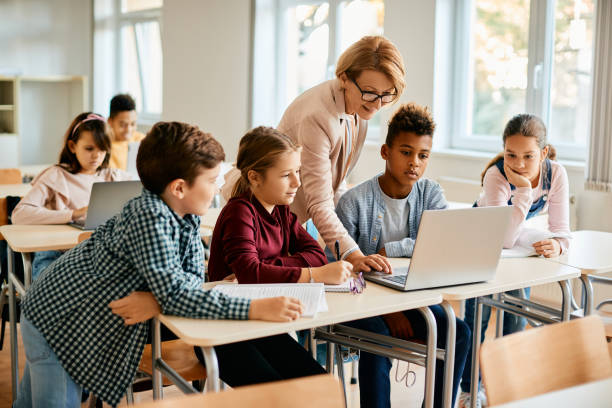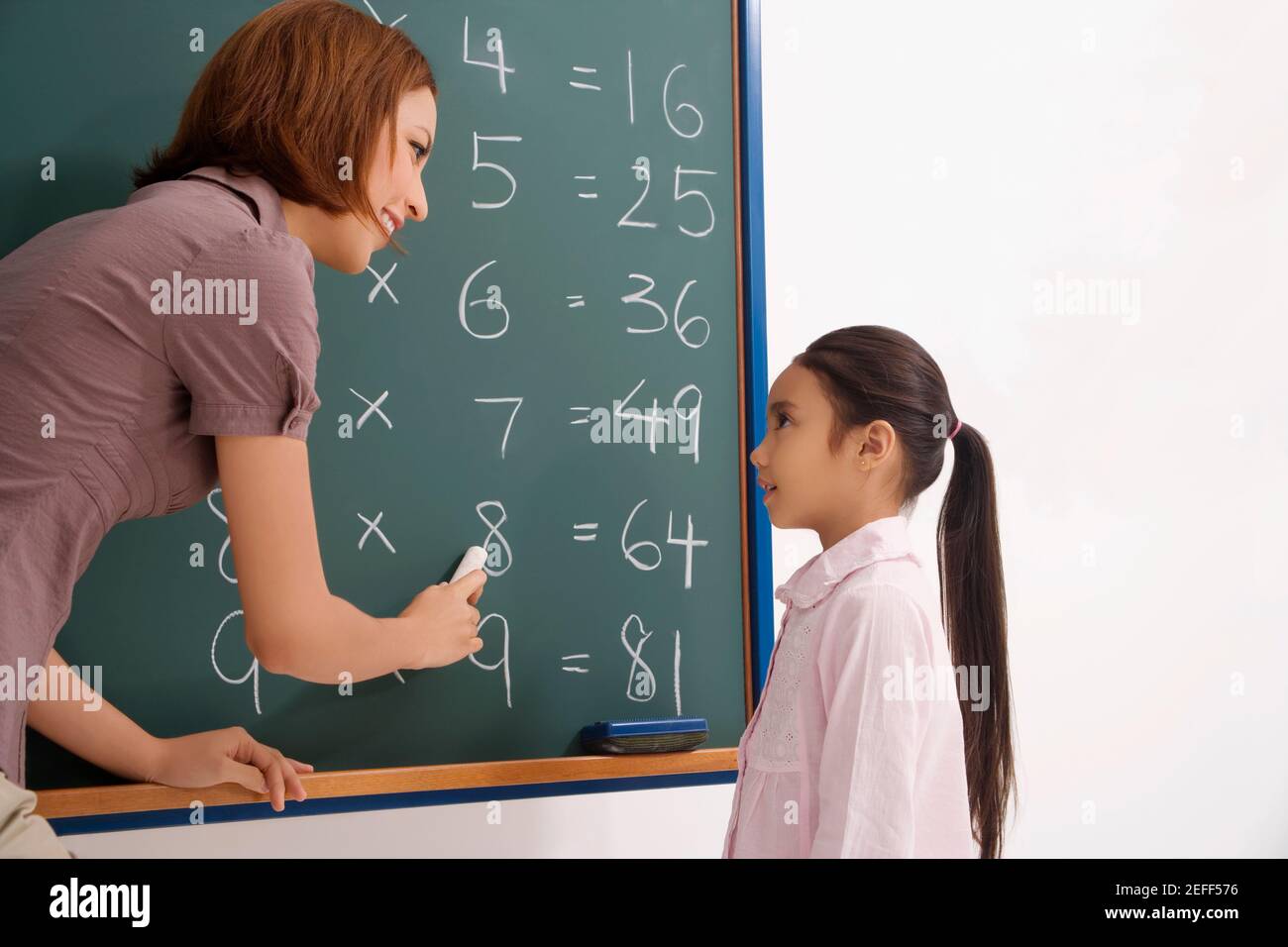Boost Your Child’s Confidence with Primary Science Tuition Singapore
Boost Your Child’s Confidence with Primary Science Tuition Singapore
Blog Article
Discovering the Various Mentor Strategies in Primary Science Education Today
The landscape of main scientific research education is evolving, with different training approaches getting prominence in contemporary class. Inquiry-based learning, hands-on experiments, and the combination of modern technology are redefining just how teachers involve young minds. Additionally, collaborative techniques and set apart instruction are being utilized to satisfy the varied demands of pupils, enhancing both engagement and understanding. As we take a look at these techniques, questions occur regarding their effectiveness and the effects for future educational practices. What might these shifts in technique mean for the next generation of students?
Inquiry-Based Knowing
Inquiry-Based Discovering (IBL) is an instructional approach that encourages pupils to explore clinical ideas with questioning, examination, and hands-on experimentation. This method highlights the duty of students as active participants in their knowing, promoting essential reasoning and analytic abilities. By engaging with real-world concerns, trainees come to be determined and curious, which enhances their understanding of scientific principles.
In IBL, educators serve as facilitators, guiding pupils as they navigate their inquiries instead of providing information straight. This student-centered method allows for distinction, fitting various finding out paces and styles. Students develop skills in developing hypotheses, making experiments, and analyzing information, which are critical for clinical proficiency.
In addition, IBL cultivates collaboration amongst pupils, urging them to share concepts and findings. This cumulative inquiry advertises social abilities and a sense of area within the classroom. Additionally, the process of questions motivates durability, as students find out to embrace failure as a tipping stone toward understanding.
Hands-On Experiments
Hands-on experiments are a vital component of reliable science education and learning, enhancing the principles of inquiry-based learning. These experiments allow pupils to involve directly with scientific ideas, cultivating a deeper understanding through experiential learning. By controling products and observing end results, young students can comprehend abstract theories in concrete means.
Such activities promote essential reasoning and analytic abilities, as pupils hypothesize outcomes, conduct experiments, and examine outcomes. This procedure encourages them to ask concerns, fine-tune their understanding, and create a scientific way of thinking. Additionally, hands-on experiments can be customized to varied knowing designs, making sure that all trainees have the chance to engage meaningfully with the web content.
Furthermore, hands-on experiments commonly urge collaboration among peers, promoting team effort and interaction abilities. Operating in teams enables trainees to share ideas, review findings, and find out from one another, which enhances their overall instructional experience.
Including hands-on experiments right into the main scientific research curriculum not only improves the finding out setting yet also grows a long-lasting passion in scientific research. By proactively taking part in their education, students are more probable to create an interest for clinical inquiry that expands past the classroom.

Innovation Combination
Incorporating modern technology right into primary science education has become significantly crucial in fostering student engagement and enhancing discovering results. The usage of electronic devices, such as interactive simulations, virtual labs, and educational software application, supplies trainees with chances to check out scientific concepts in innovative ways. These resources facilitate a much deeper understanding of complicated topics by allowing students to envision and adjust variables that would certainly be unwise in a conventional classroom setting.
Moreover, modern technology assimilation motivates customized discovering experiences. Students can proceed at their very own speed, reviewing challenging concepts through multimedia sources, which accommodate various discovering designs. This versatility not only supports private growth but also cultivates a sense of freedom in students.
In addition, technology acts as a bridge to real-world science, linking students with current research and expert payments. Accessibility to scientific journals and on-line databases widens trainees' perspectives on clinical inquiry and cultivates important believing abilities.
Collaborative Knowing
Collaborative discovering plays an important role in key science education by cultivating team effort and communication skills amongst trainees. This strategy encourages students to work together, share expertise, and involve in analytic, which boosts their understanding of scientific concepts. By participating in group activities, pupils discover to primary science tuition Singapore express their ideas, pay attention to diverse point of views, and bargain services, every one of which are essential skills in both scholastic and real-world contexts.

Research shows that collective discovering can cause boosted motivation and interaction in scientific research topics, as students locate enjoyment in shared experiences (primary science tuition Singapore). In addition, this approach prepares students for future collective undertakings, equipping them with the skills needed for reliable teamwork in higher education and learning and professional atmospheres. Inevitably, welcoming joint learning in primary science education can significantly enrich the knowing experience and promote a deeper understanding of scientific query
Differentiated Instruction

Separated direction can show up in numerous methods, such as differing the material, processes, or items of discovering. Educators might use tiered tasks that give varying levels of complexity, permitting pupils to work at their respective preparedness degrees. Additionally, versatile organizing techniques can assist in cooperation amongst pupils with various capacities, cultivating peer knowing.
Analysis plays a vital duty in this approach, as it informs instruction and helps educators understand each student's unique needs. Formative assessments, such as observations and tests, can lead educators in changing their methods to improve discovering results. primary science page tuition Singapore. Eventually, by executing set apart guideline in primary scientific research education and learning, educators can grow a more equitable and effective knowing setting, empowering all students to reach their full potential in comprehending clinical sensations
Final Thought
In recap, the diverse teaching methods in primary scientific research education and learning, consisting of inquiry-based discovering, hands-on experiments, innovation combination, collaborative knowing, and distinguished guideline, collectively add to a more reliable understanding setting. These techniques advertise essential reasoning, problem-solving abilities, and a deeper understanding of scientific principles. By executing these techniques, educators can produce supportive and appealing classrooms that attend to the varied requirements of students, eventually cultivating a lifelong passion in scientific research and enhancing scholastic success.
Inquiry-Based Understanding (IBL) is a pedagogical strategy that motivates pupils to check out clinical concepts via questioning, examination, and hands-on testing.Collaborative discovering plays an important duty in primary science education and learning by fostering team effort and interaction abilities among trainees.Study shows that collaborative knowing can lead to raised inspiration and engagement in science topics, as pupils find enjoyment in shared experiences.In promoting a comprehensive learning environment, set apart direction arises as a key approach to suit the diverse demands and capabilities of students in main here science education and learning. Ultimately, by carrying out set apart instruction in main scientific research education, educators can cultivate a much more reliable and fair understanding environment, empowering all trainees to reach their full capacity in comprehending scientific sensations.
Report this page